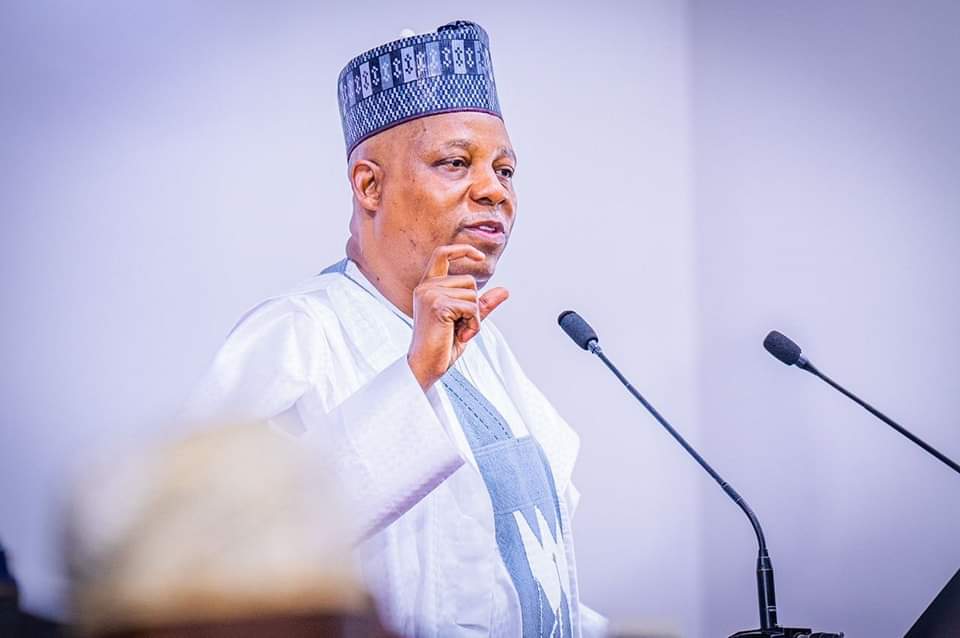N/ East political, traditional leaders urged to work for democracy dividends
The North East Development Association (NEDA) has called on political and traditional leaders from the zone to close ranks and work for the socio-economic development of the area. Addressing a press conference after the 37th General Meeting of the association on Tuesday in Abuja, Comrade Bitako Abubakar Umar, NEDA’s Secretary General said the call has […]

Vice President Kashim Shettima
The North East Development Association (NEDA) has called on political and traditional leaders from the zone to close ranks and work for the socio-economic development of the area.
Addressing a press conference after the 37th General Meeting of the association on Tuesday in Abuja, Comrade Bitako Abubakar Umar, NEDA’s Secretary General said the call has become imperative to deliver democracy dividends for the people of the zone.
Bitako, flanked by other executive members of the association, also asked other political leaders of the zone to support and close ranks with Vice President Kashim Shettima as the political leader of the zone to enable him to succeed.
He said: “NEDA as an advocacy and socio-cultural group serving as the mouthpiece of the sub-region, on its 37th meeting reviewed the political trends and developmental activities on the ground in the sub-region, and as usual, wishes to draw the attention of the good people and the critical stakeholders on the issues, with a view to strengthening the good paths and strides towards the recovery of the region from the devastations due to insurgency, conflicts, and other related criminal tendencies.”
He said critical stakeholders and the people of the sub-region need to constantly bear in mind that the region was a big hub for agricultural and business activities before the advent of Boko-Haram and the communal and ethical clashes that befell it.
“To achieve the above, political and traditional leaders must agree to come together, work together, and establish a good political will, coupled with sincerity of purpose, devoid of political, religious affiliations and ethnic backgrounds. By doing so, institutions, policies, and programmes of government can be implemented without hitches,” Bitako said.
